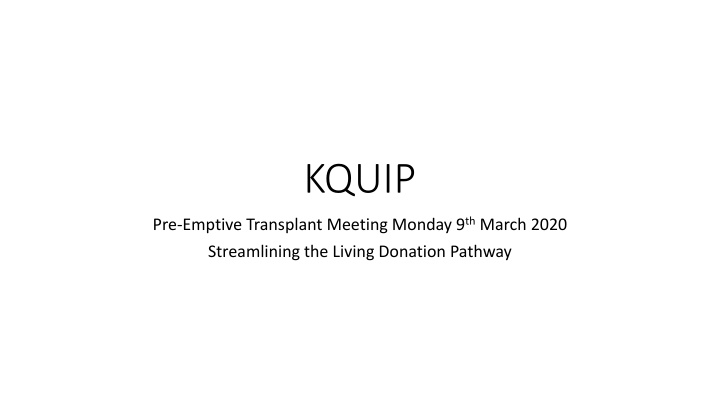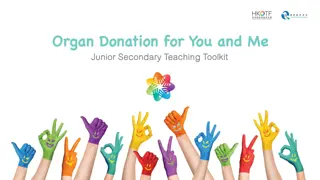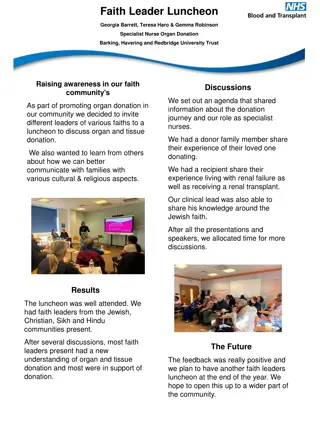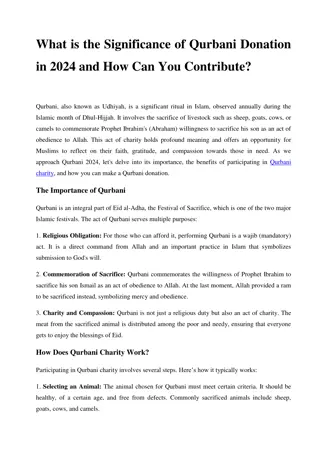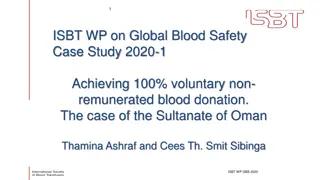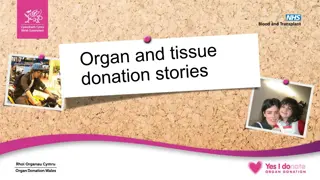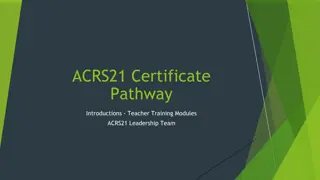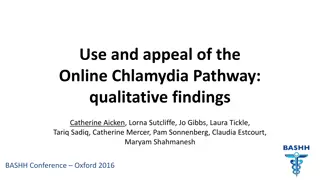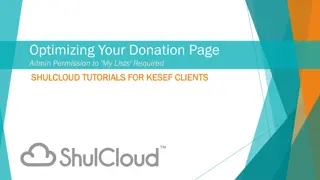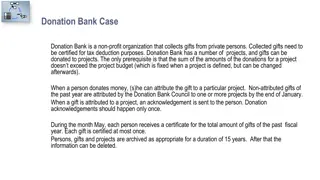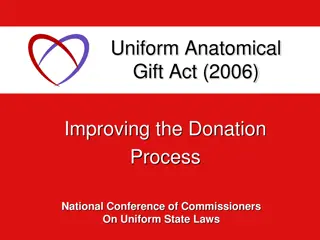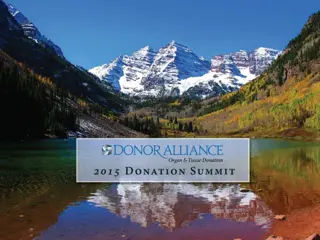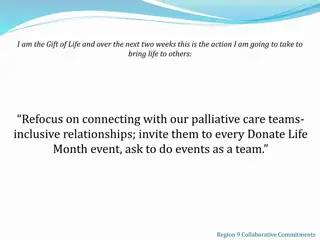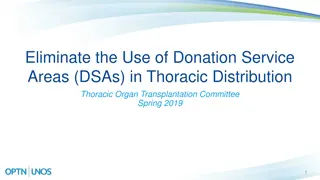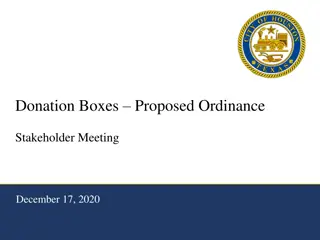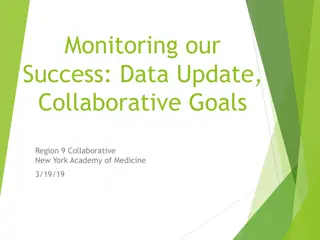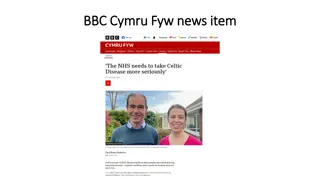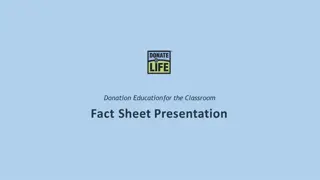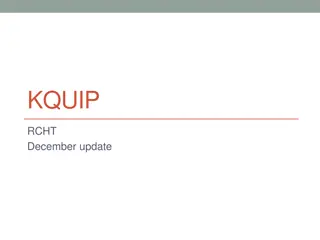Streamlining the Living Donation Pathway
Join the KQUIP Pre-Emptive Transplant Meeting on Monday, 9th March 2020 to discuss ways to streamline the living donation pathway and improve transplant processes. Learn about initiatives aimed at enhancing the donor experience and increasing transplant efficiency in this important event focused on pre-emptive transplant measures.
Download Presentation

Please find below an Image/Link to download the presentation.
The content on the website is provided AS IS for your information and personal use only. It may not be sold, licensed, or shared on other websites without obtaining consent from the author.If you encounter any issues during the download, it is possible that the publisher has removed the file from their server.
You are allowed to download the files provided on this website for personal or commercial use, subject to the condition that they are used lawfully. All files are the property of their respective owners.
The content on the website is provided AS IS for your information and personal use only. It may not be sold, licensed, or shared on other websites without obtaining consent from the author.
E N D
Presentation Transcript
KQUIP Pre-Emptive Transplant Meeting Monday 9thMarch 2020 Streamlining the Living Donation Pathway
KQUIP OXFORD & THAMES VALLEY REGION LAUNCH DAY KQUIP OXFORD & THAMES VALLEY REGION LAUNCH DAY LD Programme- The Good/Not So Good/The Future Recommendations THE GOOD THE NOT SO GOOD THE FUTURE Patient LD Seminars Single point of referral for donors Waiting time for initial appointment too long Nurse LD seminars at referring centres Great to have a named nurse More help for recipients to ask family/friends to consider living donation Online video s to include patient stories Remote/overseas donors- not a problem (appointments consolidated) A need for donor forums/seminar or LD website Weekend/out of hours appointments Staff have a good knowledge A need for more info to be available for Nephrologist to give to donors Outreach/peripheral LD clinics Comprehensive and thorough information given to donors A point of contact for sharing knowledge or information giving More press and publicity nationally Face to face meetings Need for more information pre- emptively and in advance for recipients, about the possibility of living donation Efficient process for donors
Old Pathway Versus New Pathway Old Pathway New pathway Donors complete the donor questionnaire prior to the seminar & GP summary obtained One coordinator presents the LD seminar for all donors and their recipients as a group Powerpoint presentation to aid education Virtual crossmatches - No limit to the number of virtual crossmatches that can be processed. Coordinators split donors to be seen for history taking consultation (coordinator already has background PMH) LD presentations can contain a mix of donors and recipients who wish to get compatibility tested and those who are only attending for educational reasons Internal or external healthcare professionals can attend the seminars Donors requiring an interpreter have one to one initial assessment LD initial assessment clinic every Tuesday and Wednesday 1 family or altruistic donor seen per LD coordinator, or one large family divided by 2-3 coordinators (4-8 week waiting list) Each initial assessment clinic takes the coordinator on average 2-3 hours. Crossmatch takes up to 2 weeks to process, then coordinator sends compatibility test results to the donor (2-3 weeks) Clinical Immunology team can only process 8 cells a day (formal XM) therefore a limit to the number of formal crossmatches that can be processed. Coordinator commences donor work up (4- 6 weeks minimum)
Secretary starts booking seminar appointments to commence January 2020 Seminars begin
Seminars Begin
More nephrologist slots
Coordinator on sick leave / Summer annual leave Seminars begin
Donor Screening Outcomes 3 donors ruled out/on hold since January 2020 donor BMI >38, severe COPD- deemed unfit to proceed following anaesthetic assessment 1 donors referred back to GP high HBA1C 11 donors sent questionnaire s, but never returned them = 15 donors that would have been booked into seminar appointments who were unsuitable or may have DNA d
Other Points to Mention Doctors/Nurses/HCA s have attended LD seminars on a weekly basis to improve understanding of the LD process Donor feedback has been excellent Preferred group setting- felt less alone , lots of question s asked by people that others may not have thought of More efficient time management for coordinators- saving 9 hours total time spent in initial assessment clinic per week (per team) More convenient for donors who come forward at different time periods, due to work or location etc. (not all donors have to attend at the same time)
Future Plans Nurse living donor seminars at referring centres EPAT (Electronic psychosocial assessment tool) to go live Work on a living donor website ? Home BP readings for donors rather than 24 hour BP Encourage kidney recipient/potential donors to attend LD seminars for educational purposes.
